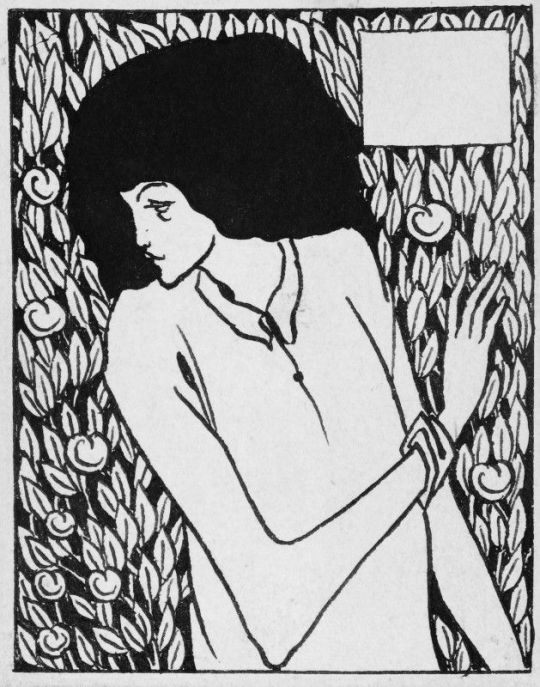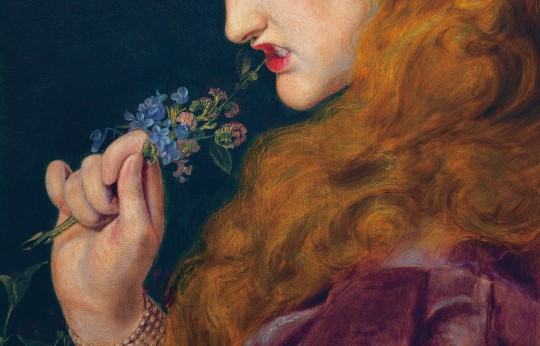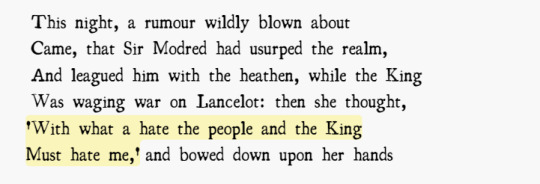#la morte d'arthur
Text
When the other polls will be out, they'll be in my 'fantasy polls' tag.
#polls#fantasy polls#fantasy#marry poppins#p.l. travers#good omens#terry pratchett#neil gaiman#the colour of magic#the color of magic#american gods#the gunslinger#the dark tower#stephen king#la morte d'arthur#thomas malory#dragonflight#dragonriders of pern#anne mccaffrey#swordspoint#riverside#ellen kushner#the buried giant#kazuo ishiguro
50 notes
·
View notes
Text

dont be shy thomas tell us how you feel about king mark
4 notes
·
View notes
Text
I'm sure there are ways to read The Death of King Arthur without reading Gauvain as suicidal and trusting only Lancelot to be able to kill him but like. Are there.
#tw suicide#tw suicide ideation#tw suicidality#gauvain#gawain#lancelot#the death of king arthur#la mort li roi artu#la morte d'arthur
5 notes
·
View notes
Note
tristan/isolde/palomides your MIND
LISTEN I have so many thoughts about them!! It’s an actual tragedy that they’ve never inhabited a movie together. I first noticed them in Le Morte d'Arthur, as I'm sure most people did, as it's more accessible than the Prose Tristan. But I didn't really appreciate them until after I read Between Knights: Triangular Desire and Sir Palomides by Oldga Burakov Mongan. In this essay, Mongan claims:
Very often the bond between the desiring subject [Palomides] and his beloved [Isolde] is peripheral, subordinate in its intensity, to the subject's relationship with his male 'mediator of desire' [Tristan].
This essay breaks down many of the encounters between these three in Le Morte and demonstrates how interconnected they truly are. Speaking for myself, I prefer La Tavola Ritonda instead. I'm not quite done scanning that, but it will be on my blog ASAP.
In the mean time, it has one of my favorite Palomides introductions ever.
There entered on the side of the King of Scozia a knight who bore all black insignia, and who was called Palamidesso the Pagan, a son of King Scalabrino. This Palamidesso carried two swords by his side as a signal that no knight had ever made him bend over the saddlebow.
Duel wielding? Bend over the saddlebow, you say? Interesting. Palomides goes on to win this tournament! After that he follows his lord to another castle where he first sees Isolde, falls in love with her, and begins a hateful staring contest with Tristan (literally). It's here that they battle for the first time...
As Tristano looked over the field, he saw that Sir Palamidesso was leaving, and called out to him, "Hallo, knight, guard yourself against me! I am the knight you met at King Languis' court, and it seems now that I am the worthier of the love of Isotta the Blonde!"
Bold Palamidesso, hearing those words, turned his horse's head around and, drawing his sword, gave Tristano such blows on his helmet that he bent him over the saddlebow. But Tristano hit back, and hit Palamidesso so hard on his helmet that he made blood gush out of his mouth and nose, and knocked him off his horse so badly wounded that for a long time he was unconscious. Thus Palamidesso lost the prize, and lost also the right to wear two swords.
Compelling word choice throughout this. Anyway as per usual they continue to squabble until eventually settling their differences and becoming friends (in part thanks to Lancelot who apparently rents out his castle for polyamorous hookups).
"When I was jousting with Sir Lancilotto the other day, he said to me, 'Now, Palamidesso, Gioiosa Guardia is worth more than any other place in the world, for it holds a noble treasure.' Therefore I imagine that this treasure is Sir Tristan and the beautiful Isotta, because those two are the ones who excel all others in the world in beauty, prowess, and courtesy."
When he heard these words, Tristano allowed Palamidesso to remount and then let his lance fall, since Palamidesso had broken his. Then he spoke in this way: "Palamidesso, Palamidesso, here is this Tristano you have been searching for. Come and fight me, if you want to. If not, I am willing to stop because of those words you spoke. I am your enemy, but I am ready to make peace with you. Still, if it would please you to fight, I am ready to do battle with you. You may choose whichever pleases and delights you most."
Palamidesso replied, "Surely, Tristano, the man who could have you for a friend would be foolish to want you for an enemy, Therefore I ask that there be peace and good friendship between us."
Nobody tell Palomides that Lancelot was almost certainly referring to Guinevere and not Tristan or Isolde. But their truce culminates in everyone joining back up at Cuck Castle Joyous Guard.
The knights then rode in that direction, and when they arrived at the main palace they found the lady, Queen Isotta, all happy and joyous, attended by ladies and maidens. When Tristano told her how he and Palamidesso had made peace, she was very glad of it, and welcomed the knights with much honor. Then the tables were set out, and they all sat down to eat.
Much later, King Arthur hosts a joust in which all participants are to bring a lady. So, now that everyone are friends, Isolde is brought along with a retinue of knights, including Tristan and Palomides. They wear her colors and fight on "her" side against Arthur, Lancelot, and their kinsmen on Guinevere's "side." Polyamory enjoyers, this text is for us. Anyway the only portion of that I'll include is this sweet passage which really illustrates that the friendship in this little group is genuine. They're all affectionate after the truce and everyone is having a great time.
When Isotta had returned to the pavilion, the tables were set out and food was prepared, and when water had been brought out for their hands, they sat down to eat. As they ate, Gariette looked out and saw Palamidesso going by looking for them, and pointed him out to Sir Tristano. Tristano got up and went to meet him, taking him by the hand and leading him into the pavilion, where he disarmed and sat at the table. They all passed that night in great joy.
After this, they all live happily ever after, and nothing bad happens. :'^) I'll have La Tavola Ritonda done soon, and then you all can enjoy it too. I promise it's worth getting used to the Italian names, it's so fun! Thanks for the ask!
#arthurian legend#arthuriana#arthurian mythology#arthurian legends#arthurian literature#tristan#sir tristan#isolde#queen isolde#palomides#sir palomides#palamedes#sir palamedes#le morte d'arthur#sir thomas malory#la tavola ritonda#tristan and the round table#quotes#ask#anonymous
33 notes
·
View notes
Text
I really, really, really dislike Le Morte D'Arthur's version of "Knight of the Cart" very, very much.
It's... honestly, the weakest and flimsiest version of Guinevere's abduction ever.
#le morte d'arthur#thomas malory#arthuriana#arthurian legend#arthurian legends#arthurian mythology#king arthur#queen guinevere#sir lancelot#knight of the cart#chevalier de la charrette#chretien de troyes#maleagant
7 notes
·
View notes
Text
"I have done to you no treason," said Palomides, "for love is free for all men, and though I have loved your lady, she is my lady as well as yours; howbeit I have wrong if any wrong be, for ye rejoice her, and have your desire of her, and so had I never nor never am like to have, and yet shall I love her to the uttermost days of my life as well as ye."
PALOMIDES DROPS THE MIC
5 notes
·
View notes
Text
Tristram and Dinadan But Girls
I want someone Not Me to write a version of the Sir Tristram adventures in Malory, with Tristram and Dinadan gender-switched. And pretty much the same other than that?
So Tris is tall, strong, blonde, and honest with a great smile. Those That Would Know think she’d be a match with a sword against Launcelot himself. She still believes ‘Tramtrist’ is a good pseudonym to travel under.
Dina is quick, dark, and shrewd. She can hold her own in a fight but would rather not if it’s all the same. She does not think ‘Tramtrist’ is a good pseudonym to travel under.
Tris is completely besotted with Isoud, the most beautiful woman she’s ever seen, and Isoud is Totally In Love with Tris too, of course, but, uh, she’s with Mark? And he’s the King of Cornwall? And obviously she’d much rather be with Tris but… shrugs. And Tris is all Absolutely! Yes! I quite see what you mean, look maybe I should… go? And Isoud says But we can still kiss and stuff I guess. And Tris says I mean, can we? Though? ‘Cause you’re married? To my… Uncle…? And Isoud looks up at her all wide-eyed and bites her lip and takes a step closer. So Tris is generally riding around anywhere that isn’t Cornwall and temptation, fighting people and playing the harp very mournfully to sheep.
Dina has a thing with Palomides, who is a great boyfriend, A+, but he does get kind of taken aback when he’s planned a picnic in the orchard or a shooting party and then Dina gets a pigeon from Tris saying ‘All well, tracking down some scoundrels in Cambria who people say have been ensorcelled by an elf-queen! Don’t worry, I have it under control it’s fine. See you at midsummer for the Thing, Tris.’ And then Dina is packing her saddlebacks as fast as she can and Palomides is all Are you sure there’s nothing, uh, between you two? And Dina says Yes! Because I don’t date Idiots who go around doing Idiot Things and spending their days Inconveniencing Everyone! And Palomides says Okay, but you do sleep in the same bed sometimes, and Dina stops rolling up her bedroll and says We’re errant knights, Palomides! Usually we don’t get to sleep in a bed at all! And then she kisses him hard and rides off to Cambria to save Tris from Fairy.
And there’d be the bit where Tris tells Dina that she’s met someone and Dina is all Oh Thank God! Because, ha ha, the whole thing with Isoud — who’s lovely don’t get me wrong — but dude, she was all wrong for you, and Tris would be Ha ha yeah, and Dina would say Anyway what’s their name? And Tris would say Uh, Isoud, and Dina would say Fucksake Tristram, and walk off. And Tris would call after her WAIT IT’S A DIFFERENT ISOUD
DINA WAIT
#le morte d'arthur#Tristram#Dinadan#But they're girls#La Belle Isoud is kind of a bad girlfriend#Palomides is a good guy but comes second to FRIENDSHIP#thomas malory
5 notes
·
View notes
Text

2 notes
·
View notes
Text
someone tell me what the fuck Linet was doing with the guy who kept getting decapitated. You cannot tell me there's no explanation. there has to be.
#Rjalker reads stories of King Arthur#la damsel sauvage#the damsel savage#Linet#UHH?H?H?H#whhhhhhhhhhhhhhats her sister's kingdom called#I don't know#Lynette#Lunette????#might be an actual different character#Beaumaines#Sir Gareth#le morte d'arthur
0 notes
Text













Why Get Angry at Helen?
Genesis (3:13) // Eve, Anna Lea Merritt // Agamemnon, Aeschylus (tr. by Anne Carson) // The Tale's Worth Telling: A Thematic Comparison of Homer's Iliad and Malory's Morte D'Arthur (x) // Love's Shadow, Frederick Sandys // Guinevere, Lord Alfred Tennyson // The Winter King, Bernard Cornwell // Helen of Troy, Frederick Sandys // Guenevere, Sara Teasdale // The Faerie Queene, Edmund Spenser // La Belle Dame Sans Merci, Frank Dicksee // Pandora's Jar: Women in the Greek Myths, Natalie Haynes // Psyche Opening The Golden Box, John William Waterhouse
#felt violently compelled to make this#is this anything#posting here bc this was triggered by camelot 1967 actually#that quote about drowning guenevere at birth goes so hard#I love it. I love it when fictional characters are haters#queen guinevere#helen of troy#web weave#arthuriana#greek mythology#web weaving#long post#*not merlin#<- you can blacklist this tag
88 notes
·
View notes
Text
There is so much that I want to say and share about the Tristan legend (long ago I once wrote a dissertation specifically on the love potion and various love magics in arthurian legend). What is most intriguing about it is how it's a narrative device that allows for such contradictory knightly behaviour.
Moreover, there are several variations in how the potion behaves, throwing even more complication into the mix. In Beroul's The Romance of Tristan, the oldest version that is believed to be closest to whatever an original tale might look like, the potion has a time limit, and wears off in the middle of the lovers' affair. In other versions, such as Thomas of Britain's Tristan, the love potion lasts until the end of the lovers' lifetimes.
In Le Morte D'Arthur, Malory works closely from the poem Sir Tristrem, as well as the Prose Tristan – a huge source which in turn takes many cues from Beroul and Thomas of Britain. Malory's lovers are in it for the long haul, "they loued eyther other so wel that neuer theyr loue departed for wele neyther for wo / And thus it happed the loue fyrste betwixe sire Tristram and la beale Isoud / the whiche loue neuer departed the dayes of their lyf | they loved either other so well that never their love departed for weal neither for woe. And thus it happed the love first betwixt Sir Tristram and La Beale Isoud, the which love never departed the days of their life."
But this love is fraught by social impropriety, the fact that they commit adultery is automatically a sin. However, if we view the love potion as the reason for their infidelity and excuse their moral failures, does that absolve their actions of any wrongdoing? And even if so, is manufactured passion truly the ideal of chivalric love that we should admire?
#malorydaily#arthuriana#tristan#tristram#tristan and isolde#tristan and iseult#isolde#iseult#le morte d'arthur
39 notes
·
View notes
Text
when Gauvain and Lancelot were fighting to the death Lancelot told his cousin: il ne me savra jamais tant haïr que je ne l’aime
by which he meant not that Gauvain could never hate him so much that Lancelot wouldn’t love him but that Gauvain wouldn’t know how to hate him so much that Lancelot wouldn’t love him, and, further, using the future tense, that Gauvain will never know how to hate him so much that Lancelot won’t love him
#get you a queerplatonic best friend who#in this house we don't say i love you etc#lancelot#gauvain#gawain#gwaine#la mort li roi artu#la morte du roi arthur#la morte d'arthur
4 notes
·
View notes
Text
Tumblr's May Day Parade 2024!
Calling all Arthurian creators!
This May 2024 let's celebrate Arthurian Legend in all its bloody spring time glory with our unique creations and contributions to this ongoing tradition. Artforms of every variety welcome and encouraged. The May-themed prompts are...
May 1-5: Morbid Month of May {May King Mordred}
“Know that he will be born the first day of May in the kingdom of Logres.” —Post Vulgate
May 6-10: Queenly Month of May {May Queen Guinevere}
“Seeing it now, this crown of swords...Guinevere is the only one who knew where it was.” —Alliterative Morte
May 11-16: Lusty Month of May {Free Space/Flower Festival}
“Tra la! It's May! The lusty month of May! That lovely month when ev'ryone goes Blissfully astray.” —Camelot Musical
May 17-21: Grumpy Month of Kay {Seneschal Celebration}
“Sir Kay, the Seneschal. Is that your name?...Now wit ye well that ye are named the shamefullest knight of your tongue that now is living.” —Le Morte d'Arthur
May 22-26: May le Fay {The Anti-Queen Morgan}
“Now come forward and see a king's daughter wield a sword.” —Post Vulgate
May 27-31: May Day Melee {Violence is Romance Enacted in Blood}
“A melee quickly ensued in which a large number of knights took part; spearheads and broken shafts soon covered the ground.” —The Crown
✧✧✧
Rules: Each prompt allows 5 days except for free/flowers which is 6 days. All mediums accepted: Illustrations, paintings, writing, music, videos, gifsets, webweaves etc. No AI generated content.
Remember to tag #May Day Parade and @queer-ragnelle so I can reblog your creations! If you have any questions feel free to ask. :^) Good luck!
#arthurian legend#arthurian legends#arthuriana#arthurian mythology#arthurian literature#sir mordred#queen guinevere#sir kay#morgan le fay#may day parade#my post
212 notes
·
View notes
Note
I wanna start reading Arthurian…..where should I begin
*rubs hands* oh excellent
I'd say one way would be to pick characters or events you'd like to read about the most and start with the texts focusing on them. @fuckyeaharthuriana has a lot of lists of different works, including those sorted by character (links in the blog description). Then, if you decide you enjoy Arthuriana in general, you can move to other texts. Another way would be to start with something well-known and short. I believe Sir Gawain and the Green Knight fits the bill well. The translation linked is more like an example, because there's a lot of them, and I frankly don't know which to suggest best; the one I read is by Bernard O’Donoghue, but I can't find it online. I've also heard very good things about Tolkien's translation - understandable, because duh, Tolkien - but haven't read it (yet). The works of Chrétien de Troyes are also very good and readable and imo very well represent what a medieval romance is. My favourite is Yvain: Knight of the Lion, and I haven't read his Perceval yet, but I liked all the other of his romances too. (Ok, maybe not Erec and Enide, but that's because I found the main character very annoying)
I've compiled a small list of Arthurian texts I recommend before when answering a similar ask, and I still stand by it, except, taking into account what I've read since then, I'd also add La Tavola Ritonda - an Italian Arthurian romance mostly focused on Tristan and Isolde, weird and violent but also very enjoyable, in my opinion, Parzival (vol. 1, vol. 2) by Wolfram Von Eschenbach - a German romance and my favourite version of the Grail story so far, and Lancelot-Grail aka the Vulgate Cycle + the Post-Vulgate. I'm not sure starting with the latter is a good idea, though, because it's five huge volumes, very readable (except for The History of the Holy Grail. You can skip that, if you ask me) and with a great impact on the later Arthurian texts, including Le Morte d'Arthur, but HUGE, it took me half a year, lol. (Le Morte is also long and often drier in style, but still not THAT long). But I simply had to mention it because it's such a foundational work. A part of the Vulgate Cycle has been adapted by Patricia Terry and Samuel N. Rosenberg as Lancelot and the Lord of the Distant Isles or, The Book of Galehaut Retold. It's short and beautiful, and you don't need to be familiar with the rest of the Vulgate to read it.
Oh, and if you're interested in more modern retellings, Idylls of the Queen by Phyllis Ann Karr is an episode from Le Morte d'Arthur retold as a murder mystery solved by Kay and Mordred, and it's amazing. Also The Squire's Tales series by Gerald Morris is a lot of fun, kind of for a younger reader but very well-written and funny, even though some of his choices regarding certain characters drive me up the wall a little bit.
Also, here's a great site by @tillman with a lot of links to various Arthurian texts!
#this is very chaotic i'm sorry#asks#kitsnicket#arthurian legends#arthuriana#gella talks arthuriana#talk talk talk
67 notes
·
View notes
Text
Sir Palomides: (gains a power-up as he sees La Beale Isoud's happy and laughing face, and defeats everybody in his path)
Sir Tristam:

Sir Dinadan: It's his time to shine.
Sir Dinadan, in his heart: if Sir Tristam actually knew that Sir Palomides was doing this coz of La Beale Isoude, then we are all fckd.
2 notes
·
View notes
Text
wild thought mais finalement je crois que je suis ok avec la possible mort d'arthur dans kv3. j'irais pas jusqu'à dire que j'espère le voir mourir, mais je suis très ok avec l'idée qu'il trouve une certaine libération dans la mort et qu'il parte (ça par contre j'espère) en paix. le boug a trop souffert et il a toujours été le pantin de sa propre existence, je trouverais ça finalement chouette que la seule et unique décision qu'on lui octroie de sa vie, ce soit celle d'enfin mourir
43 notes
·
View notes